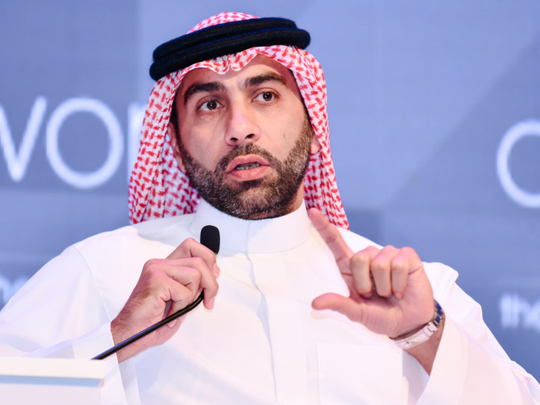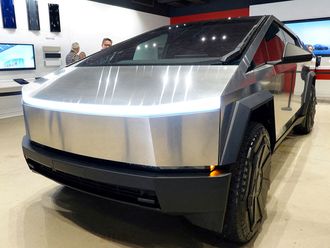
Dubai
The increasingly active role that women are playing in Saudi Arabia will stimulate retail growth, according to a senior government official.
Fahd Al Rasheed, group chief executive of Emaar, The Economic City (EEC), master developer of the $100 billion megaproject King Abdullah Economic City (KAEC), said that greater workforce participation and societal engagement from women throughout the country would have an overwhelmingly positive impact on the economy.
“You have a couple of things, first of all you have the role of women driving, which allows for them to reach retail, that helps,” Al Rasheed told Gulf News on Tuesday.
Saudi women will be allowed to start driving in the kingdom from June 24, the General Department of Traffic director general Mohammad Bassami said on Tuesday. “All the requirements for women in the kingdom to start driving have been established,” Bassami was quoted as saying in a statement released by the government.
Al Rasheed added: “Secondly, more of an engagement in the workforce means that women will have more economic power to spend. Also, with the Quality of Life initiative that was announced, even the closure [of shops] for prayer is something that they’re looking into. So that’s going to increase the efficiency of the retail sector in a big way, for both men and women.”
Saudi Arabia’s Ministry of Labour and Social Development said in September 2017 that the number of female workers in the retail sector had climbed to 200,000, as the country looks to reduce its reliance on foreign labour. The ministry is also encouraging women to work in shops selling female-centric products.
The Quality of Life programme Al Rasheed referred to was released last week by the Saudi government, and called for an end to the mandatory prayer closures for businesses, a contentious issue in Saudi Arabia. “That will allow for, I think, another boost to retail spending,” the official said.
Al Rasheed, a business veteran whose career has seen him lead strategic initiatives in investments and corporate finance for Saudi Aramco, and act as CFO and deputy governor of the Saudi Arabian General Investment Authority (SAGIA), says that in terms of the retail mix in King Abdullah Economic City, he’s starting small.
“What we’re looking into providing now is basic needs for our new residents,” he said.
In November 2017, the economic zone, which is around the same size as Brussels, had 7,000 residents. It aims to increase this to 28,000 by 2020.
However, according to Al Rasheed, the retail offering in 2020 will not be your usual, run-of-the-mill mall offerings.
“We don’t want to go into the premium standardised products. We want to provide you with a new experience that you might not have experienced yet,” he said.
Explaining this, Al Rasheed said: “We’ve created a culinary academy, that will produce new Saudi chefs into the market, and also establishing a venture capital fund to fund them, allowing them to create their own culinary experiences. We’re really going creative in terms of retail, and trying to find new ways of engaging Saudi[s].”
The official added that it was his belief that unique offerings were “the next generation of retail globally.”
“We think standardisation is great, but it is less interesting now because it is so prevalent. We think a more unique experience, through nurturing young talent, will be a more successful way for us to go forward,” Al Rasheed said.
Saudi Arabia’s consumer spending will not increase over the next three years as the kingdom implements sweeping reforms such as value added tax (VAT), according to a new report by Riyadh-based Al Rajhi Capital.












